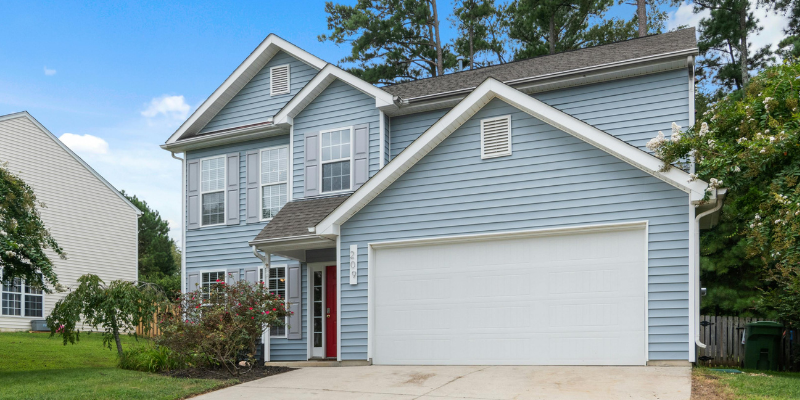
For homeowners in Atlanta, Georgia, selling a house “as is” presents the opportunity to speed up the selling process while avoiding time-consuming repairs. This situation also appeals to buyers looking for investment properties. Knowing local laws and market conditions is necessary for the successful sale of the home. This guide aims to help you understand the complexities of selling an “as-is” home in Georgia. This will benefit both first-time sellers and seasoned investors in learning how to handle this type of sale in the Atlanta real estate market.
Key Highlights
- Selling a house “as-is” allows quick transactions without repairs, appealing to buyers seeking investment opportunities.
- Georgia law permits selling as-is without inspections, but sellers must disclose known property defects.
- As-is sales attract lower offers due to anticipated repair costs by buyers, impacting the overall sale value.
- Real estate experts can aid sellers in navigating legal requirements and strategizing an “as-is” sale in Atlanta.
- Effective marketing of as-is properties involves transparency and leveraging property potential to entice buyers.
Understanding As-Is Sales
As-is sales are a distinct approach to selling real estate properties. When selling as-is, a property seller offers a house without any repairs or improvements. This approach favors homeowners who wish to avoid costly repairs. Homeowners may want to sell their property as quickly as possible due to relocation, financial pressure, or a desire to avoid the expense of renovations. In quick-selling markets like Atlanta, Georgia, selling a house as is can help sellers entice buyers who would accept the house in any condition in exchange for a possible profit or investment risk. This is a win-win situation for both sellers and buyers.
The as-is approach makes the process easier for sellers, but potential buyers still need to think it through. Buyers may feel there is a reason for a property to be as-is; thus, ‘dead offers’ may be submitted. An as-is listing can help sellers avoid disputes, but sellers should comply with Georgia’s disclosure laws to protect themselves. Recognizing that convenience is the primary reason for as-is sales is the key to navigating these transactions and providing a fair, straightforward closing for all parties.
Nance Homebuyer offers a straightforward solution for homeowners looking to sell their property as-is. We buy houses in Atlanta and other cities across Georgia, providing fair cash offers and fast closings without needing repairs, renovations, or lengthy listing processes, making it easy for sellers to move forward confidently and conveniently.
What Does House As-Is Mean in Real Estate?
“House as-is” means the owner is marketing the house in its current condition, with no improvements to be made before the sale. Most flaws will be left uncorrected, and both parties understand the need for a closing acknowledgment. This practice is typical of sellers desiring a quick deal in hot markets, like Atlanta. Although sellers, as-is, still have to honor state disclosure obligations and requirements, the as-is strategy minimizes the scope of contract negotiation for the as-is sale and post-sale corrections.
As-is sales generally attract investors looking to buy and renovate distressed properties and first-time buyers looking for a cheaper house. In such cases, it would be prudent for buyers to have an examination performed to identify possible issues that could negatively impact the house and its total cost. Defectors will note visible flaws and predetermine a concession in the sale price due to the buyer’s lack of transparency. Sellers will be expected to account for visible flaws, which will affect the range of worth, and be expected to factor such deficiencies into the total price.
In negotiations related to as-is homes, buyers consider potential repair expenses and offer less. Additionally, listing prices may be lower than those of updated homes. Sellers enjoy uncomplicated transactions with fewer repair requests and greater efficiency. On the other hand, buyers are more exposed to unquantified risks regarding future value and post-acquisition costs.
Pros and Cons of an As-Is Sale
Both sellers and buyers must consider the pros and cons of as-is sales. One significant advantage for sellers is that as-is sales allow for rapid closings, which is beneficial in relocation or financial emergencies. The seller saves on the time and costs of preparation, staging, and property improvements, which is a considerable advantage in more competitive and time-sensitive markets like Atlanta, where properties are listed for sale for short periods.
Nonetheless, there are also downsides to selling as-is. Sellers can risk decreasing the property’s market value, as buyers will often calculate any estimated necessary repairs into the selling price. This can lead to low offers or buyers unwilling to undertake a considerable project. In the case of a home in good condition, labeling it as-is is usually a red flag that can lead a potential buyer to think there are unseen problems in the house. This can also lead a seller to change their selling strategy.
From the purchaser’s perspective, as-is sales can be attractive for their lower prices, albeit with the risk of hidden, costly repairs. Buyers who understand the market will still conduct inspections to assess potential expenses and invest to ensure their costs won’t go down the drain.
In the end, an as-is sale requires an understanding of the situation’s upside and downside. As with every market, including Atlanta’s, there will be challenges. This understanding will allow smooth and satisfactory transactions on both sides.
Legal Aspects of Selling a House in Georgia

Selling a house in Georgia involves navigating various legal requirements and disclosure obligations, especially when selling as-is without an inspection. Understanding these factors helps protect buyers and sellers, ensuring a smooth and transparent transaction. While inspections are not legally required, they can reveal issues that might affect a property’s value or appeal. Skipping this step can speed up the sale and save costs, but it also places more responsibility on the seller to disclose known defects or material facts. Working with cash home buyers in Atlanta and other Georgia cities can further simplify the process, as these buyers often purchase properties as-is and handle the transaction quickly.
Because Georgia sellers can sell a home without pre-listing inspections, they might be interested in selling their home quickly or have less cash available for a home sale. However, sellers need to take the time to explain the complete condition of a home that might affect a buyer’s decision to purchase the house, including any roof, foundation, plumbing, or electrical issues. Significant undisclosed problems can lead to litigation, even after a sale is finalized, so it is in sellers’ best interest to be transparent to mitigate risks to all parties.
Disclosure requirements in the Georgia statute will improve the chances of a smooth sale. Sellers must provide prospective buyers with a disclosure statement detailing the known issues with a property that contain a property. But building a bridge is best long before you reach the other side. Legal, ethical, and professional practices should be self-evident. Selling a home as-is after a difficult inspection, or worse, after an uneasy negotiation, should be equally self-evident, as should your duty to uphold Georgia’s disclosure laws.
Can You Sell a House Without an Inspection in Georgia?
In Georgia, particularly in the more fast-paced Atlanta region, selling a property without conducting an inspection is a relatively common practice. Many sellers pick this route to reduce the time needed to sell the home, avoid dealing with the negotiations over repairs, or make the whole transaction easier. Although it may seem simple enough to sell without an inspection, there are legal implications and important factors to consider. Georgia law permits sellers to list a home ‘as is’ since there are no inspection requirements. However, this option can have a lasting impact on negotiations between the buyer and the seller.
Buyers are often unaware of the property’s condition, and this lack of information influences their offers. Buyers usually assume repairs are needed when pricing the property on as-is sales, so they typically come in with lower offers. Despite the lack of legal obligation, buyers will frequently order an inspection after an offer is accepted to uncover hidden issues and avoid the unpleasant surprises that come with renovated homes.
Presale inspections often seem unappealing because they increase time and costs. For some sellers, like those quickly relocating or driven by financial stress, time is of the essence. Even so, it is still essential to set a reasonable asking price that accounts for the home’s condition, which is an as-is property. Strategic pricing, informed by a clear understanding of the current market, helps capture the attention of serious buyers and opens lines of honest communication.
Real estate agents are key in advising sellers on market trends and leading them on as-is sales. They facilitate a legally compliant and seamless transaction. Even if selling without an inspection can streamline the process, due diligence is required on both parties to avoid risk and build trust in the transaction.
To help you successfully sell your house without an inspection, consider these practical tips:
- Hire a knowledgeable real estate agent experienced in as-is sales.
- Set a competitive price based on recent comparable sales.
- Disclose known issues to build trust with potential buyers.
- Market the home’s strengths, emphasizing unique features.
- Encourage cash offers to streamline the sale process.
- Be prepared for negotiations and offer flexible closing terms.
- Highlight the investment potential of the property.
- Consider offering a home warranty to ease buyer concerns.
These tips can guide you towards a successful sale while minimizing risks.
Georgia’s Disclosure Requirements for Property Sales
Georgia’s property sales disclosure requirements show the state’s commitment to consumer protection and transparency principles. While sellers are legally permitted to sell a house without an inspection, they must still disclose any known material defects to prospective buyers. Such disclosures are legally binding and will help buyers understand the condition of the property and any issues of a material nature that might affect the buyers’ decision. However partial, that disclosure is a considerable aid to buyers. Georgia’s real estate practice is built on the flexibility of disclosure.
The nature of the problems that sellers must disclose and describe includes, but is not limited to, selling a house with termite damage, water damage, structural and system defects, dangerous materials like asbestos or lead, and significant over- or under-building. Failure of a seller to disclose these defects will expose the seller to litigation or the risk of a judgment. To improve uniformity, generic disclosure documents help sellers disclose the information, especially in cases where no inspection document is available.
Real estate professionals in Georgia play a crucial role in helping sellers accurately and legally complete these forms. This assistance helps reduce legal exposure and builds confidence among the involved parties. Selling a home in Georgia as-is remains permissible; however, total disclosure is required by law to safeguard the consumer, maintain equity in the transaction, and uphold the reputation of the real estate market in the state.
Selling a House in Atlanta, GA

Selling a house as-is in Atlanta has special advantages for homeowners and buyers in the competitive real estate market. Homeowners have the option of selling a home in its current condition. Often, homeowners selling as-is houses attract buyers looking for a house to flip, landlords looking to add to their portfolio, or investors looking for a renovation project, and selling as-is works well for homeowners looking for a quick sale since there will be no time spent on repairs and no expenses incurred on renovations and upgrades.
While there are time and repair cost benefits, selling a home as-is may simplify the sale process. However, this does not mean the seller does not have to understand the law, the legal selling process, and real estate regulations in Georgia. Selling a property as-is in Georgia is lawful, but there are still regulations homeowners must abide by, and heavy penalties may occur. Homeowners must understand and abide by the law on property defect disclosure and value and safety issues disclosure. If a seller does not abide by this, disputes will arise, and/or the sale will be revoked. Sellers must be honest.
Properly equipped sellers can wholly and confidently sell a house as-is. A trusted real estate agent with Atlanta market knowledge is invaluable in pricing, marketing, and negotiation. Ultimately, selling a house as-is can be helpful and lucrative with honesty and professional assistance.
| Legal Requirements | Pricing Strategies | Buyer Protections | Marketing Approaches |
|---|---|---|---|
| Disclosure of Material Defects | Competitive Market Analysis | Home Inspection Rights | Targeted Online Listings |
| As-Is Sale Agreements | Market Value Adjustments | Contingency Clauses | Professional Photography |
| Compliance with Local Laws | Flexible Pricing Insights | Legal Documentation Review | Open House Events |
This table highlights key aspects of selling a house as-is in Atlanta, from legal requirements and pricing strategies to buyer protections and marketing approaches, helping sellers navigate this competitive market effectively.
Is it Legal to Sell an Atlanta House As-Is?
Under Georgia’s real estate laws, selling a home as-is is permissible if sellers follow the mandated disclosure guidelines. This strategy simplifies the selling process and often attracts investors seeking properties to renovate. Nonetheless, to prevent any lawsuit, sellers must document the home’s condition, and the potential legal ramifications of such sales must be understood to sell as-is efficiently.
While it is true that sellers do not need to make any repairs, to protect themselves and buyer trust, sellers still need to describe any known material defects—structural, shifted, or water damaged as failing to disclose them will be seen unfavorably. This seller disclosure of defects will be an implicit and positive step toward fostering ethical sales transparency in Atlanta’s active housing market.
Ensuring the home’s condition meets the expected standard ensures the checklist is fulfilled. A seller should factor in the expected repair costs when listing a property. Price negotiations are also likely.
Not disclosing known defects could lead to legal problems, hence the importance of engaging with a real estate professional. Specialists understand Georgia’s regulations and can guide the proper completion of all the required disclosure forms.
Ultimately, selling as-is successfully requires only good faith and legal hard work. Adherence to the law on disclosures enables sellers to transact confidently and keeps Atlanta’s competitive real estate market an integrity market.
How to Proceed with As-Is Sales in the Atlanta Market
To sell an as-is home in Atlanta requires strategy, process knowledge, and knowledge of Atlanta’s competitors. The first step is to establish a reasonable and competitive price based on the condition of the home to manage buyers’ expectations. Reasonable prices will attract serious buyers looking to invest in the house and appreciate its value. It is recommended that an agent be retained, as they will provide comparable and as-is sales.
When marketing an as-is home, transparency is essential. Whatever the home’s weaknesses, don’t shy away from describing the home’s location, unique features, and potential value from the buyer’s perspective. Emphasizing the home’s potential advantages is bound to attract buyers looking to invest and those looking for affordable entry points. Whenever no repairs are being made to a home, it is a good practice to encourage buyer inspections to help foster trust and mitigate potential disputes long after the sale. Such transparency will facilitate smoother negotiations and reduce the risk of unexpected issues.
All sellers should ensure they have completed state disclosure forms accurately and entirely. Disclosures are necessary to protect the parties involved and maintain Atlanta real estate statutes. Buyers have the right to know the condition of the property in an upfront manner. Consulting an attorney to help mitigate expensive mistakes is worthwhile.
Finally, online marketing can be used to broaden the range of potential buyers. Captivating high-quality images and thorough descriptions focusing on the property’s current condition and future potential will help reach more prospective buyers. If your home is as-is, the proper price, marketing, and honesty will make selling as-is real estate in Atlanta profitable and expedient.
If you’re considering selling your home as-is, contact us today to receive a no-obligation offer from our company that buys houses in Atlanta and surrounding cities. We make the process fast, transparent, and hassle-free—helping you sell your property quickly and confidently.
Preparing for an As-Is Home Sale
![Tips for Selling a Home As-Is Without an Inspection in [martket_city]](https://image-cdn.carrot.com/uploads/sites/74302/2025/10/Tips-for-Selling-a-Home-As-Is-Without-an-Inspection.png)
For Atlanta home sellers, as-is home sales tend to take less time, and sellers won’t have to perform any financially and logistically burdensome repairs or renovations, which may even be a relief. This is very appealing in a competitive market, such as Atlanta, as buyers—especially investors and flippers—are almost always keen to buy homes as they are.
Not making improvements does not mean sellers cannot take steps to improve appeal, like decluttering, deep cleaning, and attending to minor superficial repairs. Serious prospective buyers and quality offers come from sellers who are realistic enough to judge their property as is and price it accordingly to match market conditions. One must also accept the roles and consequences of a pre-sale inspection to sell successfully as is. This type of inspection is not mandatory. However, it can expose possible problems a buyer will discover during due diligence, thus helping sellers anticipate buyers’ objections and enabling more strategic property pricing.
Giving prospective buyers the inspection report or using it to prepare is an excellent way to avoid unwanted surprises that derail negotiations. Coupling thoughtful preparation with an understanding of the inspection process helps sellers work confidently in the Atlanta real estate market.
Steps to Take Before Listing Your As-Is Home
When listing your home as-is, especially in a busy market like Atlanta, the steps you take beforehand can significantly influence your sale’s success. Start by setting a realistic price that reflects the home’s current condition. A well-priced property attracts serious buyers and accounts for potential repair costs. Work with an experienced real estate agent who understands as-is sales and can guide you based on market trends and comparable listings. You may also consider receiving an offer from a company that buys houses in Newnan, Atlanta, and surrounding cities in Georgia, as these companies often purchase homes as-is and can help you close quickly without the hassle of repairs or extensive listings.
Even without conducting repairs, cleaning, decluttering, and light staging, minimal staging can go a long way. It can be worthwhile to sweep the home of its clutter and stage even a little. Every house has its unique features, value, and strengths. Ensure that the potential value, renovation, and value are accentuated and shown to buyers and investors. Location is a strong selling point, and unique features can be added.
Complete all disclosures. In Georgia, known defects must be disclosed, even under an “as-is” sale. Incomplete disclosures can lead to lower buyer trust, as well as potential legal troubles and disputes. You can rely on the completeness and lawfulness of the disclosures and even obtain legal guidance from a real estate lawyer.
Strategic property marketing is essential. Display the property’s potential online using quality photos and comprehensive descriptions. Online visibility to buyers looking for renovations is gained through innovative marketing.
Allow buyers to perform their own evaluations. This will show that you are open and honest, creating trust that will help keep negotiations real. Selling as-is and avoiding repairs is not simply selling; it involves prior planning and selling for the right price, presenting the property appropriately, and marketing it to truly interested buyers. This will ensure successful and seamless negotiations.
Should You Undergo an Inspection Anyway?
Selling a house as-is in Atlanta lets sellers skip pre-sale inspections, but choosing to get one can offer real advantages. An inspection reveals hidden issues and gives sellers a clearer picture of what buyers might find and use in negotiations. Though not required, it helps validate the listing price and adds transparency that builds buyer trust, often speeding up the sale process.
By sharing inspection findings, sellers can reduce uncertainty, support open dialogue about the property’s value, and avoid lengthy back-and-forth bargaining. Knowing the home’s condition also prevents unwelcome surprises, enabling sellers to address concerns quickly and manage expectations more effectively. If the report shows only minor issues, it can justify standing firm on the asking price.
An inspection can also shift focus from flaws to potential. Highlighting opportunities for renovation appeals to investors and DIY buyers who see value in improvement. Real estate agents can help use these insights to market the home strategically and ensure proper disclosure compliance.
While an inspection involves some cost, its clarity, confidence, and negotiation power can outweigh the expense. Ultimately, even for an as-is sale, an inspection equips sellers to price wisely, foster buyer confidence, and strengthen the credibility of the transaction in Atlanta’s competitive market.
Conclusion: Is Selling a House As-Is Right for You?
Selling your house as-is can speed up the process and attract buyers wanting quick, straightforward transactions. This strategy appeals to sellers who want to save time and avoid costly renovations, especially in competitive markets like Atlanta, where demand often exceeds supply. Selling as-is means accepting offers for the property in its current condition, with no repairs or upgrades, offering convenience but also requiring careful planning.
A key benefit is attracting investors or buyers who see value in improving the property. It simplifies negotiations since buyers know the home won’t be modified before sale, often leading to faster closings. However, pricing the home realistically and understanding repair costs are crucial to avoid undervaluing it.
Georgia law requires full disclosure of known material defects even when selling as-is. Honest reporting protects sellers from future disputes and helps maintain transparency.
While selling as-is reduces upfront expenses, it can lower the market value, as buyers may factor in renovation costs. Sellers should weigh speed versus profit, considering their financial goals and urgency. Consulting an experienced real estate agent can help set competitive pricing based on current Atlanta market trends.
This option works well for those needing to relocate quickly or facing financial pressure, prioritizing efficiency over maximum returns. Proper preparation, understanding local laws, and guidance from market experts can achieve a smooth and legally compliant transaction. When managed strategically, selling as-is in Atlanta can be a practical, time-saving solution.
FAQs:
What does selling a house “as-is” mean in Atlanta, Georgia?
Selling a house “as-is” in Atlanta means offering the property in its current condition without making any repairs or upgrades. The buyers know the house may have potential defects, and the seller will not fix them before the transaction.
Are sellers required to disclose defects when selling a house “as-is” in Georgia?
Even when selling “as-is,” Georgia law requires sellers to disclose any known material defects that could affect the property’s value or safety. Failure to disclose can result in legal consequences.
Is a home inspection necessary when selling a house “as-is”?
No, a home inspection isn’t necessary when selling a house “as-is” in Georgia. But sellers benefit from knowing potential issues buyers might discover during their independent inspection.
What are the pros and cons of selling a house “as-is”?
The main advantage is a quicker sales process without repair negotiations. However, offers are typically lower as buyers factor in repair costs. Sellers must comply with disclosure laws despite selling “as-is.”
How can sellers ensure a smooth “as-is” transaction in Atlanta?
Sellers should work with real estate professionals to navigate local laws, set realistic prices, and market their property effectively. Full disclosure of known defects fosters trust and transparency throughout the transaction.
Need to sell your house? Whether you want a fast sale, wish to skip expensive repairs, or simply prefer a hassle-free process, Nance Homebuyer can help. We provide fair cash offers, care for all the details, and ensure a smooth, stress-free experience. Ready to get started or have questions? Call us at +17707582729 for a no-obligation cash offer today!
Helpful Atlanta Blog Articles
- Selling a Probate House in Atlanta, GA
- Can I Sell My House if It is in Foreclosure in Atlanta, GA
- How to Sell an Investment Property in Atlanta, GA
- Paperwork for Selling a House by Owner in Atlanta, GA
- Navigating an Inherited House with Siblings in Atlanta, GA
- Selling a House with Foundation Problems in Atlanta, GA
- How Long After an Appraisal Can You Close in Atlanta, GA?
- How Long Can a Seller Stay in the House After Closing in Atlanta, GA
- Can Heir Property Be Sold in Atlanta, GA?
- Can You Sell a House As Is Without Inspection in Atlanta, GA?
- Do I Need a Lawyer to Sell My House in Atlanta, GA?
- Tax Implications of Selling Home in Atlanta, GA
- Sell a House with Title Issues in Atlanta, GA
- Sell a House with a Squatter in Atlanta, GA

